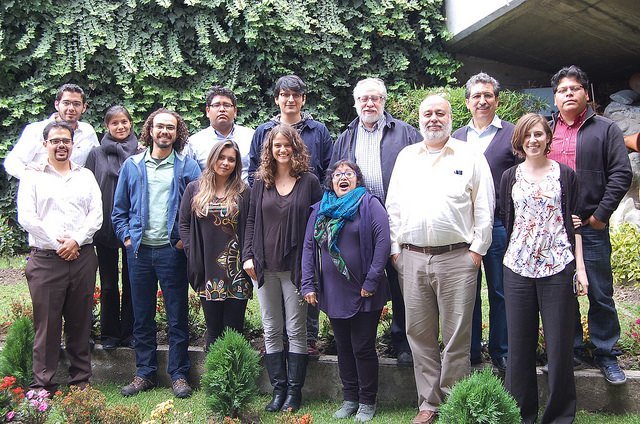On May 19, 20 and 21, the XI Forum on the Extractive Industries of the Latin American Network on the Extractive Industries (RLIE) was held in Quito, comprising 12 Latin American organizations and, since more than a year ago, Publish What You Pay (PWYP). Moreover, since its creation in 2009, this network has maintained a close partnership with the Natural Resource Governance Institute (NRGI).
Representatives of Brazil, Bolivia, Colombia, Ecuador, Guatemala and Mexico came together in the Ecuadorean capital to reflect and debate the impact of the mining boom period in the region. They also tackled the challenges that our countries are facing at this time, when the prices of different minerals have been dropping progressively while oil prices have been plummeting.
They tried to analyze the impact that extractivism has had and still has on the economy, public finance, social and environmental policy, decentralization and transparency, engagement and prior consultation. And, of course, they broached the issue of continuing to search for existent or future alternatives to this supposed development model which leaves behind massive environment deterioration, human rights violations and extensive greenhouse gas emissions that lead to climate change.
Among the debated issues, there was one that gained special significance, standing apart from the dynamics observed in the countries: the fact that, instead of seeking alternatives to this model, governments set out to take it one step further. This way, they are trying to compensate for the price decline by increasing production and stretching the extractivist boundary.
In order to do so – as well as to lower the costs for the companies that develop the projects – several Latin American governments have taken actions aimed at weakening the regulation of mining and oil production activities, especially those relating to population and environment protection. That is, activities which make it easier for companies to obtain environmental licenses and other types of permits that are necessary in order to get access to the territories. This came with a bigger centralization of the decision making process to the detriment of the engagement from the population and local governments.
All this paints an alarming outlook that prompts the region’s civil society to search for creative ways of taking action, some of which include the strengthening of the mechanisms of information and engagement in the extractive sector-related policies and especially in environmental regulations policies.
There are different ways to achieve this. At the RLIE, we believe that a possible course of action would be to generate more transparency for the resources managed by the companies and governments in order to prevent, mitigate and – in exceptional cases – compensate for the environmental impacts that lead to damage for the population. On this basis, we believe it is vitally important that the Extractive Industries Transparency Initiative (EITI), which is increasingly present in our region, incorporate the obligation to generate information on this issue. This follows closely after what the civil society of Colombia and Peru has outlined – and most assuredly, what the civil society of Mexico will outline.
To that effect, the dissemination of all the documentation related to the environmental impact evaluation procedures might be boosted, for example, in order to facilitate social engagement in said procedures. Another option would be that companies start publicizing the payments they make in order to comply with the obligations set forth in the environmental impact authorizations once they get approved in connection with any actions necessary to prevent damages. Another alternative would be that governments release information about the budget they assign to extractive activity oversight which may allow for the timely discovery of bad practices and to properly sanction the responsible parties.
But all these measures will not suffice if others are not implemented at the same time, in order to strengthen the civil society’s engagement in the national EITI processes. Barring that, it is not possible to rely on standards which would meet the demands and needs that these countries have. Furthermore, the processes would become mere exercises in legitimating governments, companies and extractive activities instead of substantive changes for the population. We have the example of the experiences in Guatemala and Honduras, where the EITI was implemented outside the purview of the independent civil society and extractivism criticism. Therefore, it is also important that, within the Latin American region, we encourage more effective and inclusive engagement spaces that are coercion-free and co-optative , in line with the efforts made on other fronts.
On this basis, we will be working at the RLIE and alongside our allies to include these issues in the EITI, for which a key moment will be the next EITI Global Conference scheduled to take place in Lima on February 25 and 26, 2016. It will be the first time that this event is held in Latin America, which is why it should be a great opportunity to make our voices heard clearly. We encourage you to join us on this path and to join our campaign as we will continue to update you about it in the coming months.
Aroa de la Fuente – Fundar, Center for Research and Analysis
Coordinator with the Latin American Network on the Extractive Industries (RLIE)
Member of the PWYP Board and Global Council











